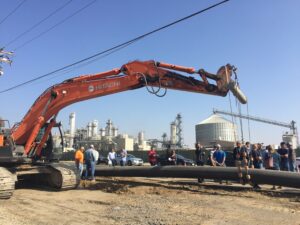Uncategorized
Bioenergy generation from organic waste is critical to meet California’s climate goals – both the near term goal of reducing methane and black carbon, known as Short-Lived Climate Pollutants (SLCPs) and the longer term goal of reaching carbon neutrality. That’s because organic waste causes more than 80 percent of California’s methane and black carbon emissions,…
Read MoreBioenergy has an important role to play in the transportation sector by providing the only carbon negative fuels in existence. Organic waste can be converted to biomethane, renewable hydrogen, or renewable electricity to fuel vehicles on or off the road and to provide Sustainable Aviation Fuels (SAF). Biomethane can be used to fuel heavy duty…
Read MoreCalifornia will continue to need gas for energy reliability, heavy duty transportation, and hard to electrify end uses such as manufacturing, industry, cement, glass, and more. That gas does not have to come from fossil fuels, though. California can replace fossil fuel gas with renewable gases like biomethane and hydrogen generated from organic waste and…
Read MoreBioenergy from organic waste can provide renewable power that is available when needed, also known as “firm” power. California will need thousands of megawatts of firm, renewable power to fill in when solar and wind power are not available and for periods when batteries are not sufficient. Bioenergy is also the only form of power…
Read More



